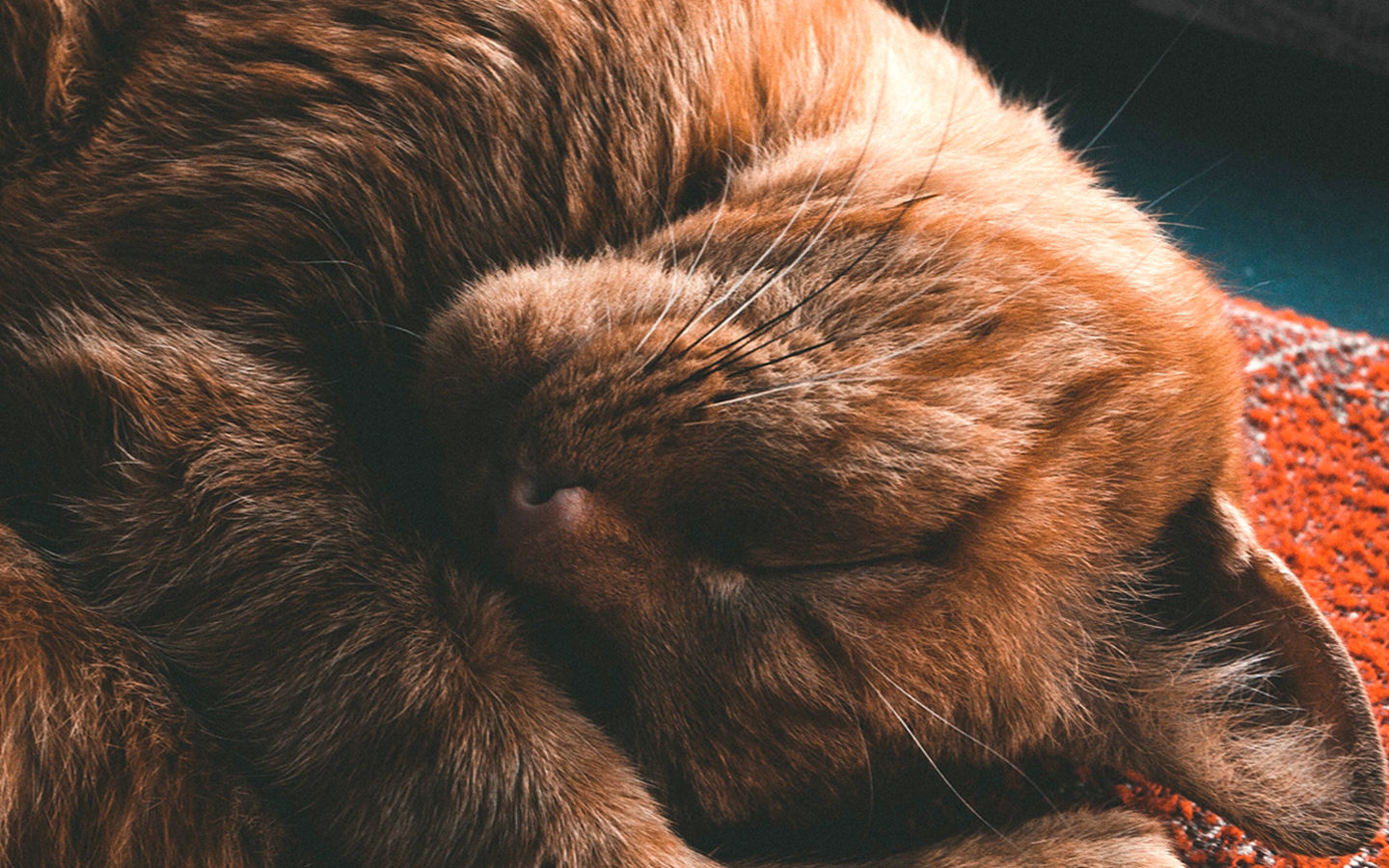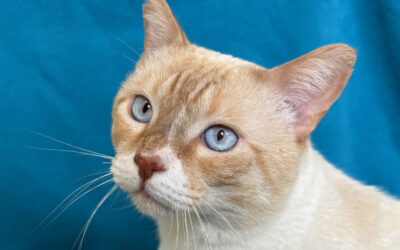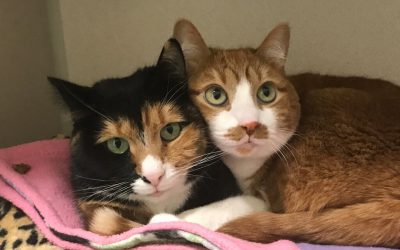Dear Ms. Kitty
I have a 10-½ year old cat who just sleeps most of the day. I think Lucy is bored and lonely. Should I get a kitten to keep her active?

Dear Reader,
This question demonstrates your desire to help Lucy to enjoy her senior years. However, adding a kitten may not be the best direction to go for her health and wellbeing.
Many senior cats are challenged by the activities of daily living. If you add a hyper kitten to your home, you could overwhelm Lucy.
It could be that Lucy needs support for a physical issue, environmental modifications and more attention from you to increase her level of activity.
Make sure Lucy has been evaluated by her vet and that her health is not an issue. Lots of older cats suffer in silence with chronic kidney disease, hyperthyroidism, or cancer.

There is also research that shows 90% of cats greater than 12 years of age have degenerative joint disease (DJD). Another study showed DJD in 92% of cats 6 months to 20 years, so even younger cats can suffer from pain in their joints.
I recommend reviewing your home to make sure Lucy has an enriched environment that is adapted to her physical needs and encourages activity.
Make sure that she can get around the house, especially to favorite vertical spots. This may require adding steps, shelves or ramps along with non-skid mats. Many older cats lose some of their ability to jump and may need to have shorter distances and surfaces that allow them to safely navigate without slipping.
As cats age they lose the ability to retract their claws. Lower activity may also allow the claws to continue to grow. This can cause the cat to get caught on surfaces or even allow the claws to curve around and into the soft pads or their paws.
Help Lucy by trimming her claws, but don’t trim them too short. She should be able to catch herself and use her claws to climb.
Older cats, especially if they are thin, can lose their ability to regulate their body temperature. Offer a heated bed or heat-reflecting one that is designed for cats to enjoy safely.

Keep life interesting with interactive play and puzzle feeders. Older cats still have the desire to hunt. Lucy many need more time to get engaged and her play may not be as physical as it once was but chasing a toy is still important for a healthy mind and body. Offer short play sessions that are appropriate for her physical limitations. Lucy may enjoy more attention and playtime with you rather than the rambunctious attention of a kitten.
You want to watch Lucy to see if her weight is increasing or decreasing. Try to keep her meals nutritionally dense. Sometimes a nutritional supplement added to a food she already likes can enhance her nutrition.
You can also try adding some warm water or sprinkling some freeze-dried protein on top to keep her interested. Some cats will do better with multiple small meals during the day.

Make sure that she has a couple of sources of water and is staying hydrated. Experiment with different dishes for food and water. She might find it easier to eat and drink from a raised dish and she might enjoy a water fountain if she doesn’t have one.
Help Lucy conserve her energy by keeping the litter boxes near her main living area. Make sure she can get in and out of the box easily.
If she has arthritis, she may want a soft litter that is more comfortable on her paws. Try giving her an additional box with some new fine-grained or soft textured litter and let her show you what she likes.
Cats can start to lose their eyesight with age so you may want to install nightlights in hallways, so she doesn’t get disoriented in the dark.
Observe Lucy to see that she is sleeping. Sometimes cats will rest but not achieve the deep sleep states that are important for healing and normal energy. This could be related to a physical concern or a stress related problem.
If you see that Lucy has areas of her fur that are not getting groomed, it maybe that she is not as flexible and may need assistance with her grooming.
This can help keep Lucy comfortable and avoid matted fur, but it is also a great way to spend quality time. Try some different grooming tools and see what Lucy enjoys.

At 10-½, Lucy would be about 60 in human years. If you feel that Lucy is still energetic and would benefit with the addition of another cat, I would recommend finding an older cat who will be a good match with Lucy’s age and personality.
It is helpful to observe any cat you are considering adding to your family to see how they interact with other cats. It would be stressful for Lucy if she had to share her territory with another cat who would bully her or constantly compete for your attention.

Cats who have lived as only cats may not adapt to sharing their home and guardians, especially in their later years. Accepting a new cat can be difficult even for cats who have had bonded relationships with other cats.
You may find that your best intentions to get a kitten friend for Lucy may turn her quiet life into one filled with stress. If you are set on bringing in a young cat, then I suggest getting a bonded pair so they can keep each other busy and not exhaust Lucy.
Tapping into Lucy’s health and emotional needs will let her show you what she might like in the way of companionship. Finding a reputable rescue like Happy Cats Haven that knows their cats well will help you make a good match for Lucy…and for you!

 Melissa Shandley is one of the founders of Happy Cats Haven, a Cat Behavior Consultant and Cat Care Provider. She has a natural kinship with cats and is continually studying the latest research and training methods to set cats up for success. She approaches her interactions with respect and a sense of wonder for these creatures who are willing to share our lives.
Melissa Shandley is one of the founders of Happy Cats Haven, a Cat Behavior Consultant and Cat Care Provider. She has a natural kinship with cats and is continually studying the latest research and training methods to set cats up for success. She approaches her interactions with respect and a sense of wonder for these creatures who are willing to share our lives.
www.playandtreatpetservice.com
shandleym@q.com
719-686-8778




